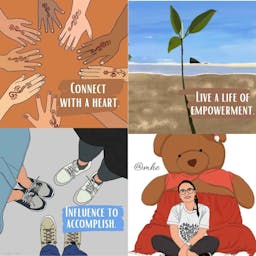How to respond to Sexual Violence? (Learn how to take action, report and get support when sexual violence happens to you or a colleague in the workplace) Part 3
Dec 7, 2020
Story
Responding to sexual violence involves medical care, psychosocial support, accountability, and legal justice. Not all types of support may be needed for every incident. For example, a sexual harassment case might not require medical care. Available support and services for survivors at their workplace can greatly differ by location and organization. Ideally the survivor’s organization has prepared response plans and services for sexual violence. However, if such mechanisms are not in place, you and the survivor should advocate for specific care in the workplace.
Guiding principles for responding to sexual violence and helping survivors after an incident.
1. Survivor-Centered Response
Survivors are given the opportunity to make their own decisions about how to respond to the sexual violence they have experienced. This includes refusing to follow specific medical treatment or to make a report until they are ready. Being survivor-centered is giving a survivor back the control that was taken from them during their experience with sexual violence and giving them the ability to say yes or no to different options.
2. Confidentiality
Keeping the survivor’s experience confidential will ensure that he or she can trust the process and remain safe. Experiencing sexual violence can be dangerous for some survivors in different contexts, which could result in them being harmed further or killed.
3. Dignified Response
Basic humanity and dignity is always essential, especially post trauma. This means empowering survivors, giving them a voice, and not rushing or forcing them to make decisions until they are ready.
Here are some key considerations when looking for medical care for survivors after sexual violence:
1. Medical Care - Survivors receiving medical care must always:
- Feel safe and comfortable.
- Give their informed consent to all medical decisions concerning care, medications, and treatment.
- Feel empowered to say yes or no to any medical care options presented to them.
2. Physically Violent Incidents (rape or sexual assault) - Survivors of physically violent incidents (rape or sexual assault) should:
- Seek immediate medical care, ideally within 72 hours or less.
- Take medications in Post Exposure Preventive (PEP) Treatment kits within 72 hours; the sooner, the better.
- For women, take medications to stop or prevent potential pregnancy within 72 hours or less.
- Take Sexually Transmitted Infection (STI) medications as needed, even after 72-hour timeframe.
3. Medical Care - Survivors with limited or no available medical care should:
- Seek support from international health organizations, such as International Committee of the Red Cross or Médecins Sans Frontières (Doctors without Borders) as an alternative option.
- Inquire about alternative ways to access different forms of post-sexual violence drugs that may be limited in the survivor’s current location.
Local staff may get medical care in their own country or prefer to get medical care in another country due to the sensitive nature of the incident and any feelings of shame, stigma, or fear associated with their culture or context.
Psychosocial Support for Survivors After Sexual Violence
Many survivors find that psychosocial support, when they are ready for it, is a vital part of the recovery and healing process.
Follow these key considerations when looking for psychosocial support services for survivors after sexual violence.
1. Specialized Psychosocial Support
- Ask for referrals to known psychosocial support networks with experience
- Ask for a therapist who is specialized in addressing sexual violence, and someone who speaks the first or second language of the survivor.
- Seek support from organizations specializing in mental health and psychosocial support
2. Limited or Lack of Psychosocial Support
- may have the option to seek support from local psychological structures or ask for access to services available.
- Use technology, such as phone, skype, or other platforms, to connect with services.
- If services are not available in the survivor’s language, ask for a translator, cultural mediator, or a trusted peer (if nothing else is possible) to help with translation during sessions.
This resource provides guidance for survivors and their colleagues in the aftermath of sexual violence occurring in the workplace.
Reference:
Cornerstone OnDemand Foundation, © Copyright 2019 Cornerstone OnDemand Foundation
https://www.who.int/violence_injury_prevention/violence/global_campaign/...




